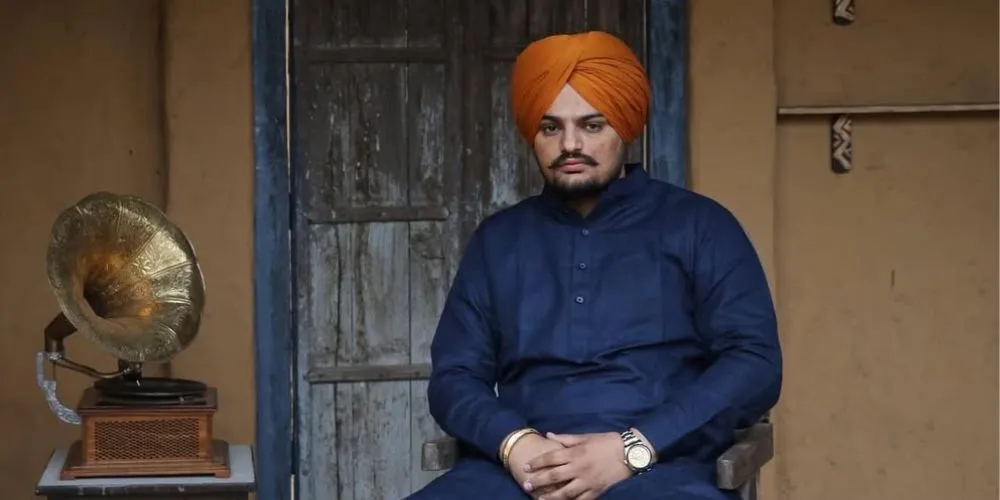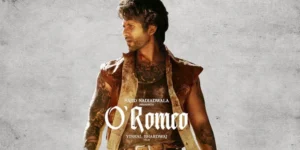
A statue of the late Punjabi singer and rapper Sidhu Moosewala was recently attacked by unknown assailants in Dabwali, Haryana. The shocking incident, where gunshots were fired at the statue, has drawn widespread condemnation and a deeply emotional response from his mother, Charan Kaur. The attack is believed to be a calculated act of aggression by a notorious gang, reigniting the painful memories of the singer’s murder in 2022.
Charan Kaur’s Heartfelt Plea: “A Wound to My Soul”
The news of the vandalism first came to light when Sidhu Moosewala’s mother, Charan Kaur, took to Instagram on Tuesday to express her shock and sorrow. In a powerful post written in Punjabi, she described the attack not merely as an act of vandalism but as a “wound to her soul.” She wrote, “My son remained the voice of the people’s rights, and an attempt is being made to silence him even after he went to the Almighty.” She further added that his legacy would not be silenced, stating, “I want to tell everyone that one day, the guilty will definitely be punished for their actions. Our silence is not our defeat.” Her words resonated with millions of fans and supporters, who have been demanding justice for the singer since his tragic death.
The Lawrence Bishnoi Gang Claims Responsibility
The incident has taken a more sinister turn with reports from Live Hindustan and other sources claiming that the Lawrence Bishnoi gang has taken responsibility for the attack. In a social media post, members of the gang reportedly warned against what they called the “glorification” of Sidhu Moosewala. The gang, which was allegedly behind the singer’s murder in 2022, stated that those who portray him as a martyr and erect statues in his honour will face “dire consequences.” The threats were reportedly directed at political figures, including Jannayak Janata Party (JJP) state president Digvijay Chautala, who had installed the statue.
The police have registered a case against unknown individuals in Dabwali, Sirsa district, and a full investigation is underway. Authorities are also working to verify the authenticity of the social media posts and assess the credibility of the threats. Increased security has been deployed at the memorial site and the surrounding areas as a precautionary measure.
The statue of Sidhu Moosewala was erected last year in Sawantkheda village, Dabwali, Haryana, by JJP state chief Digvijay Chautala. The memorial was a tribute to the singer’s massive influence and his status as a cultural icon, particularly among the youth. However, the installation also drew political attention, as Moosewala had joined the Congress Party before his death.
On July 29, Chautala reportedly received a video of the firing from an international mobile number, along with a threatening message claiming, “Sidhu Moose Wala has already been eliminated, and his supporters will be targeted next.” This incident highlights the ongoing tensions and rivalries between political factions and criminal gangs in the region, with the memory of the deceased singer caught in the crossfire.
Sidhu Moosewala: A Legacy That Lives On
Sidhu Moosewala, whose real name was Shubhdeep Singh Sidhu, was a musical sensation who rose to international fame with his unique blend of Punjabi folk, rap, and hip-hop. Known for his powerful lyrics and outspoken nature, he often sang about social issues, rural life, and his personal struggles. His sudden death in May 2022 left a void in the music industry and a deep sense of grief among his fans.
His legacy, however, continues to live on. From his posthumously released music to the memorial statues erected in his honor, his influence remains a powerful force. The attack on his statue is not just an act of violence against a piece of art; it is an attack on the memory and the movement that Sidhu Moosewala represented. The incident has once again brought to the forefront the need for justice and an end to the gang violence that plagues the region.
As his mother and fans continue to seek justice, the incident has sparked a larger conversation about the safety of artists and the right to remember their memory without fear.




